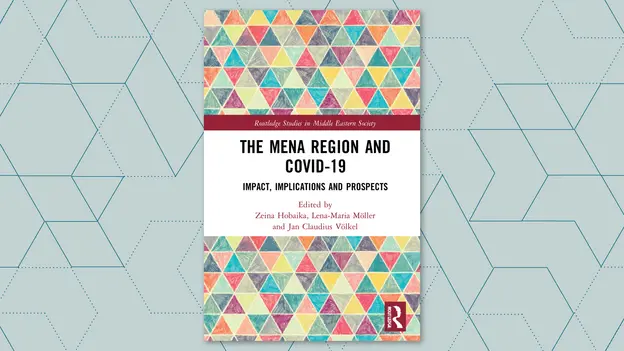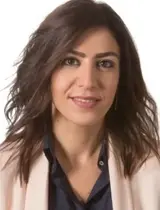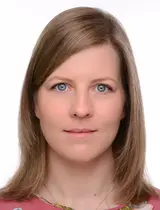Working Group Project
The COVID-19 Pandemic in the Arab World
Workshop & Publication
The COVID-19 pandemic has quickly spread around the globe and put almost all countries under immense pressure. While the Corona virus itself does not distinguish between rich and poor concerning its infectivity, the consequences differ significantly: Financially sound societies can afford a shutdown of their economy to enable people isolating themselves, while citizens in poorer countries miss the luxury of not going to work each day. Keeping children out of school for months can be balanced (at least partly) through excellent learning conditions at home, but might seriously hamper children’s learning progress when technological conditions and educational support are meagre to non-existent. The Middle East and North Africa region (MENA), in particular, is believed to be particularly vulnerable to infectious diseases like COVID-19 due to the high number of migrants and travellers. The millions of refugees and internally displaced persons (IDPs) form particularly vulnerable communities. Nonetheless, some MENA countries ranked among the world’s best COVID-19 responders.
The book project ‘Arab Countries and the COVID-19 Pandemic: Impact, Implications, and Prospects’ was initiated by AGYA members Prof. Dr. Zeina Hobaika, Prof. Dr. Lena-Maria Möller, and Dr. Jan Völkel. In the framework of the AGYA Working Group Dynamics of Transformation, they jointly organized a cross-disciplinary and international workshop, bringing together authors from Europe and different Arab countries. The authors represented various academic disciplines including political science, agriculture, health science, and education. They discussed, through their diverse disciplinary lenses, how the unprecedented and far-reaching crisis caused by the COVID-19 pandemic affected social, political, economic, cultural, academic and individual life in the Arab World.
Approaching the pandemics' effects on the MENA region
The chapters in this edited volume tackle three main questions related to the pandemic’s effects on the MENA region.
The first set of articles deals with geopolitical consequences. Prof. Dr. Thomas Demmelhuber, Dr. Julia Gurol and Dr. Tobias Zumbrägel trace ‘autocratic linkages’ between the Arab Gulf countries and China during the COVID-19 pandemic, and Dr. Nassim Abi Ghanem analyses how the connections between Iran and Hezbollah have impaired responses to the COVID-19 pandemic in Lebanon.
A second set of articles focusses on regimes’ communicative strategies during the crisis. AGYA alumna Prof. Dr. Carola Richter, Prof. Dr. Abdulrahman Al-Shami, Prof. Dr. Soheir Osman, Prof. Dr. Sahar Khalifa Salim and Samuel Mundua demonstrate how the strategy of ‘othering’ – one of the classic tools in power maintenance – has also dominated COVID-19-related media coverage in Egypt, Iraq, Oman, and Yemen. Dr. Giulia Cimini and Beatriz Tomé Alonso also identify such ‘othering’ strategies in their in-depth analysis of the Moroccan monarchy’s behaviour, as does Dr. Alexander Lohse with a review of the successful handling of the pandemic by the UAE’s leadership – albeit in very different directions.
The third set of contributions considers social implications that the pandemic has had for communal life and public policies in the MENA region. Noël van den Heuvel and Prof. Dr. Ulrike Freitag investigate reasons for the quite distinct reactions of religious actors in Iran and Saudi Arabia to the question of whether the pandemic requires a far-reaching halt of religious ceremonies. A rarely considered, yet distressing consequence of the COVID-19 pandemic, is addressed by Manara Babiker Hassan. She elaborates how female migrants from the Horn of Africa – mostly Ethiopia – have become stranded in Khartoum after the borders were closed and international travel was suspended. In addition, the way the COVID-19 pandemic has been handled as a public health challenge in Lebanon is highlighted in the chapter by Dr. Michèle Kosremelli Asmar and Joumana Stephan Yeretzian. Finally, Prof. Dr. Fadi El Hage and Dr. Fouad Yehya present interesting insights into the state of school education in Lebanon.
The publication project has been presented during 27th International DAVO Congress on 16-18 September 2021 in Osnabrück, Germany, and is available for pre-order at Routledge.
Table of content
1 Arab countries and the COVID-19 pandemic: concept and content of this book
Prof. Dr. Zeina Hobaika, Prof. Dr Lena-Maria Möller & Dr. Jan Claudius Völkel
GEOPOLITICAL IMPLICATIONS
2 The COVID-19 temptation? Sino–Gulf relations and autocratic linkages in times of a global pandemic
Prof. Dr. Thomas Demmelhuber (Friedrich-Alexander-University, Erlangen-Nürnberg)
Dr. Julia Gurol (University of Freiburg)
Dr. Tobias Zumbrägel (Center for Applied Research in Partnership with the Orient (CARPO), Bonn)
3 The reverse impact of politics on the COVID-19 response: how Hezbollah determined the choices of the Lebanese government
Dr. Nassim Abi Ghanem (Central European University, Vienna)
COMMUNICATION STRATEGIES
4 The virus of the ‘other’? Coronavirus and discursive othering in Arab media
Prof. Dr. Carola Richter (Freie Universität Berlin)
Prof. Dr. Abdulrahman Al-Shami (Qatar University)
Prof. Dr. Soheir Osman (Cairo University)
Prof. Dr. Sahar Khalifa Salim (al-Iraqia University of Baghdad)
Samuel Mundua (University of South Africa, Pretoria)
5 Securitisation dynamics and COVID-19 politics in Morocco: old wine in new bottles?
Dr. Giulia Cimini (University of Bologna)
Beatriz Tomé Alonso (Universidad Loyola Andalucía, Seville)
6 Status-seeking in times of a global pandemic: the United Arab Emirates’ foreign policy during COVID-19
Dr. Alexander Lohse (Philipps-University, Marburg)
SOCIAL RESPONSES
7 Religion and pandemic: state, Islam and society in Saudi Arabia and Iran during the coronavirus crisis
Noël van den Heuvel (Leibniz-Zentrum Moderner Orient, Berlin)
Prof. Dr. Ulrike Freitag (Leibniz-Zentrum Moderner Orient, Berlin)
8 ‘On the horns of a dilemma’: human traffickers, the COVID-19 pandemic and victims of trafficking in Khartoum
Manara Babiker Hassan (University of Khartoum)
9 A paradoxal management of COVID-19 in Lebanon: challenges and lessons learnt
Dr. Michèle Kosremelli Asmar (St. Joseph University of Beirut)
Joumana Stephan Yeretzian (St. Joseph University of Beirut)
10 Digital learning under COVID-19: challenges and opportunities – the Lebanese case
Prof. Dr. Fadi El Hage (St. Joseph University of Beirut)
Dr. Fouad Yehya (St. Joseph University of Beirut)
11 Conclusions: Arab countries and the COVID-19 pandemic
Prof. Dr. Zeina Hobaika, Prof. Dr Lena-Maria Möller & Dr. Jan Claudius Völkel
- Disciplines Involved
- Agriculture, Biochemistry, Education, Law, Medial Sciences, Political Science, Social Sciences
- Cooperation Partners
- Arnold-Bergstraesser-Institut, Germany
- Universität Leipzig, Germany
- Saint Joseph University, Lebanon
- Event
- Authors' Workshop on 20-22 October 2020
- Book Launch on 16-18 September 2021
- Read more
- The MENA Region and COVID-19
- Project Title
- AGYA Book Project ‘The Impact of the COVID-19 Pandemic on the Arab World and Europe’
- Year
- 2020
- Funding Scheme
- Working Group Project
- Working Group
- Dynamics of Transformation
- Countries Involved
- Germany, Lebanon, Qatar, Sudan, Austria, Italy, Spain
- AGYA Publication
- ‘American Corona’ vs. ‘The Chinese virus’: Blaming and Othering in Arab Media
- Introduction: The MENA Region and COVID-19 – Concept and Content of this Book
- The MENA Region and COVID-19. Impact, Implications and Prospects




